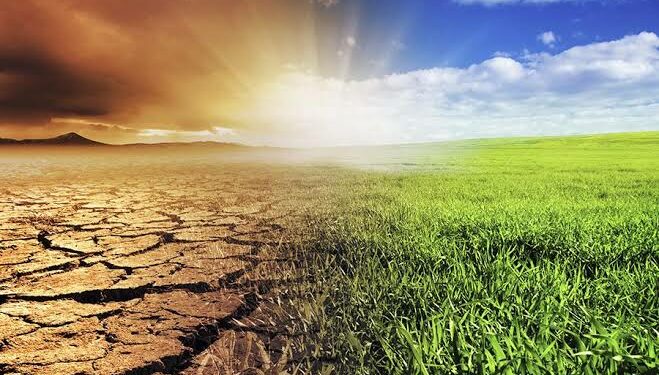Climate change has long been viewed as a pressing threat to our planet facing humanity today. The increasing temperatures, rising sea levels, extreme weather events, and loss of biodiversity are all clear indicators that urgent action is needed to mitigate the effects of climate change.
The consequences of inaction are far-reaching and threaten the very foundation of our planet. It is crucial that we take immediate steps to reduce greenhouse gas emissions and implement measures to adapt to the changes already occurring.
Like many countries in the world, Uganda has experienced the effects of climate change which has turned the seasons around with the country experiencing shorter or longer rains and harsher droughts
According to the Notre Dame Global Adaptation Initiative (2021), Uganda ranks as the 13th- most-vulnerable country in the world to climate change and 160th out of 192 nations in readiness to confront the threat.
A report from (Irish Aid,2016) shows that weather patterns are changing, and water levels in several water bodies are dropping. Extreme weather events such as floods, landslides, and prolonged drought are becoming more frequent in the country, threatening people’s livelihoods
The urgency to address climate change has never been greater. It is not just a matter of saving the environment; it is about ensuring a livable planet for our children and grandchildren
Climate change does not only affect the environment but also gender Since is the most important employment sector for women in low- and lower-middle income countries, during periods of drought and erratic rainfall, women, as agricultural workers and primary procurers, work harder to secure income and resources for their families. This puts added pressure on girls, who often have to leave school to help their mothers manage the increased burden.
The government of Uganda has dedicated itself to the United Nations’ Framework Convention on Climate Change and the Kyoto Protocol, and has integrated climate- change interventions in its Vision 2040 and five-year National Development Plan (Ministry of Water and Environment, 2015; Ministry of Finance, Planning and Economic Development, 2018). But building climate resilience will require concerted efforts from all stakeholders as well as substantial funding (Busby, Smith, White, & Strange, 2012).
Achieving climate resilience requires commitment from both responsible stakeholders as well as substantial funding.
One of the most prominent opportunities lies in reducing greenhouse gas emissions from burning fossil fuels, deforestation, industrial processes, and agriculture, we can limit the impact on the atmosphere and slow down global warming. This, in turn, can help protect fragile ecosystems, preserve biodiversity, and maintain balance in our ecosystems.
In addition, addressing climate change requires a shift in our consumption patterns and lifestyle choices. This presents an opportunity to embrace sustainable practices that not only reduce our carbon footprint but also improve our overall well-being. Sustainable agriculture, for instance, promotes healthier food choices and reduces the use of harmful chemicals, implementing sustainable agricultural practices can help ensure food security for current and future generations benefiting both human health and the environment. Similarly, adopting sustainable transportation options such as electric vehicles and public transit can reduce air pollution, congestion, and dependence on fossil fuels.
Climate change also necessitates a shift towards more resilient and adaptive communities. By investing in climate-resilient infrastructure, we can protect vulnerable regions from the impacts of extreme weather events, including floods, droughts. This not only safeguards lives and property but also promotes long-term sustainability. Additionally, building resilient communities fosters social cohesion, as people come together to address common challenges and support one another. Moreover, addressing climate change requires global cooperation
As the effects of climate change become increasingly evident, the need to mitigate its impacts has become more urgent than ever before. By taking prompt action to reduce greenhouse gas emissions, invest in sustainable practices, and adapt to changes, we can protect our environment, ensure food security, improve public health, stimulate economic growth, and promote global cooperation. The time for action is now, and together, we can create a sustainable future for generations to come.
Do you have a story in your community or an opinion to share with us: Email us at editorial@watchdoguganda.com













